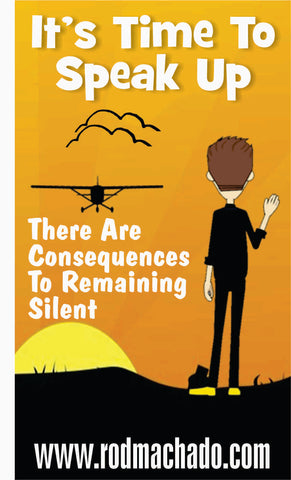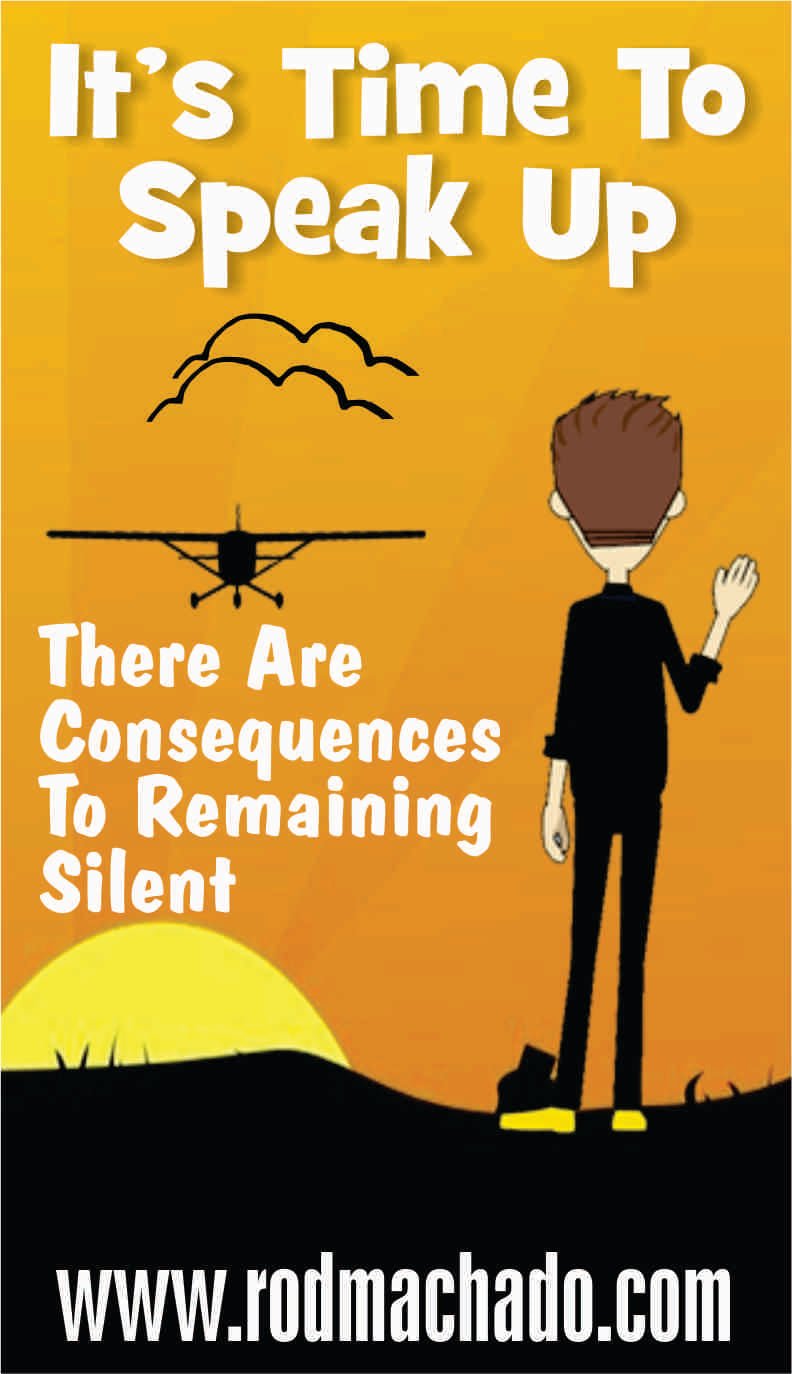 “Hey Rod, tomorrow I’m taking my little airplane out to see what it can do. I’ll see ya later.”
“Hey Rod, tomorrow I’m taking my little airplane out to see what it can do. I’ll see ya later.”
Those were the last words I ever heard my best friend speak. I never saw him again. The next day, his newly-assembled ultralight airplane disassembled in flight, for reasons suspected but officially unknown.
That tragic event occurred in December of 1984 and my friend’s words are still clear. I’ve run that audio engram over and over, hundreds of times, each time reliving the same feeling I had when he last spoke. The memory provokes a peculiarly unsettling experience—as if my world is about to change and I must act immediately to stop it. I abhor that feeling, but I also respect it.
If only I had said, “Hey partner, wait! Something’s not right here. Yes, your airplane has a ballistic parachute system. But can you trust it? You are nine years my senior. I defer to your experience and judgment. But listen to your words, ‘See what my little airplane can do?’ It sounds like unnecessary risks are involved. Convince me I’m wrong.” I have no idea if those words would have prevented the loss of my friend. I wish, however, I had spoken them.
Instead I quipped, “Hey buddy, have a great time.” Those words, tossed away as easily as a crumpled gum wrapper, came from the wrong place inside my brain. It’s a place that is overly concerned about butting my nose in other people's business or butting heads with them (I'm a "live and let live guy"...as long as someone still gets to live). Given another opportunity, I’d attach a different part of my brain to my voice—a wiser part, the part within all of us that knows better than to keep quiet. I’ve since had that opportunity with a number of others.
It first happened a few months later, at an aviation expo. I overheard a young flight instructor regaling fellow pilots with a curious tale. He confessed with pride how he flew a Zlin—one without any working gyro instruments—to the expo in scudrunning weather conditions that morning. Indeed the weather was bad, very bad. That’s why the craft I landed at the airport that day was a Chrysler, not a Cessna.
I was taught to mind my own business. After all, few people like another person’s values imposed upon them. But where does his business become my business? No precise, well-defined border exists. Sometimes it’s clear; sometimes it’s not. In this case it was clear that a fellow pilot thumbed his nose at risk, perhaps unaware of the hidden dangers.
In aviation, the users are also the caretakers. Each of us shares a tacit responsibility for aviation’s health, a responsibility that implies informing fellow aviators when we think their actions expose them and others to unacceptable levels of danger. On that basis, I decided to speak up. I approached him and said, “Excuse me but I’d like to tell you a little story about a dear friend of mine who’s no longer with us....”
Speaking up has its risks. At the extreme, it’s possible that an offended ruffian might say, “Hey. I’m going to punch your nose in.” I suggest you avoid saying, “Don’t you know you never end a sentence with a preposition?” After all, it’s possible he may elect to punch in your nose.
While it’s unlikely you’ll ever receive impromptu rhinoplasty, the risk of offending someone by speaking up always exists. Yes, your actions have consequences. But so does inaction. Silence is not necessarily golden; it has consequences too.
Perhaps the words of the bright but mischievous radio personality, Bill Balance, are appropriate here. He once said, “I’d rather have remorse for what I did, than regret for what I didn’t do.” Applied in the context of aviation safety, it seems better to say, “I’m sorry I said that,” rather than “I wish I had said that.” In this small way, we fulfill our responsibility as pilots to help ensure the survival of aviation and its participants.
Since December of 1984, I’ve taken airplane keys away from a drunk pilot, and grounded a few airplanes that I thought presented an imminent danger to both pilot and passenger. I’ve even had a rather spirited discussion with the pilot of a Cherokee Six after eight people emerged (you do the math). Each time I hesitated before I acted and thought, “Is this really any of my business?” Then I heard those words, “Hey Rod, tomorrow I’m taking my little airplane out to see what it can do. I’ll see ya later....”

5 comments
Very good reminder, and even more relevant here in 2024 when a lot of people really don’t want to speak up to anybody about anything, but I’m pretty sure most of us out here over the age of 50 ( and many quite a bit younger ) have had at least one incident in our lives where we wished we’d said what we actually wanted to say to someone and for whatever reason chose not to only to discover we’d never have the chance again.
I’m 84 and 3 instructors left for other work so I repeated everything for 12 months. After many landings for the three of them, the last one lost his temper and started screaming that I could not see and that the training was over and I should stop wasting my money. I could have had his license via a report to the FAA but he is young and I don’t want to ruin his life. The owner volunteered to be my instructor but was hard-assing me to frustration………..I’m now with another School. People need to know there are some people who cannot teach and often it is not the students fault.
A very important message here Rod; thank you! Too many of us fail to say something when we see dangerous acts in aviation (because, as you say, some kind of respect for our excessive freedoms?) I end all my safety talks by imploring participants to reach out and invite those not present (or we are “preaching to the choir”) We need a culture change like MADD made with drunk driving; “friends don’t let friends fly dangerous!”
A very important message here Rod; thank you! Too many of us fail to say something when we see dangerous acts in aviation (because, as you say, some kind of respect for our excessive freedoms?) I end all my safety talks by imploring participants to reach out and invite those not present (or we are “preaching to the choir”) We need a culture change like MADD made with drunk driving; “friends don’t let friends fly dangerous!”
Newly minted PPL, building my hours to become a flying instructor. On days when the weather wasn’t good enough for me, but OK for a helicopter, nice chap would sometimes take me with him to his business meetings. One day our refueller is regaling me with story that this chap had just flown in with his family on board, and had the helicopter refuelled. The uplift pretty much matched the tank’s capacity. Long think, then the 70 hour pilot goes up to the vastly more experienced commuter pilot and has a word. I just couldn’t have lived with myself if he had run out of fuel at some later date. He thanked me. Rod, you are quite right!